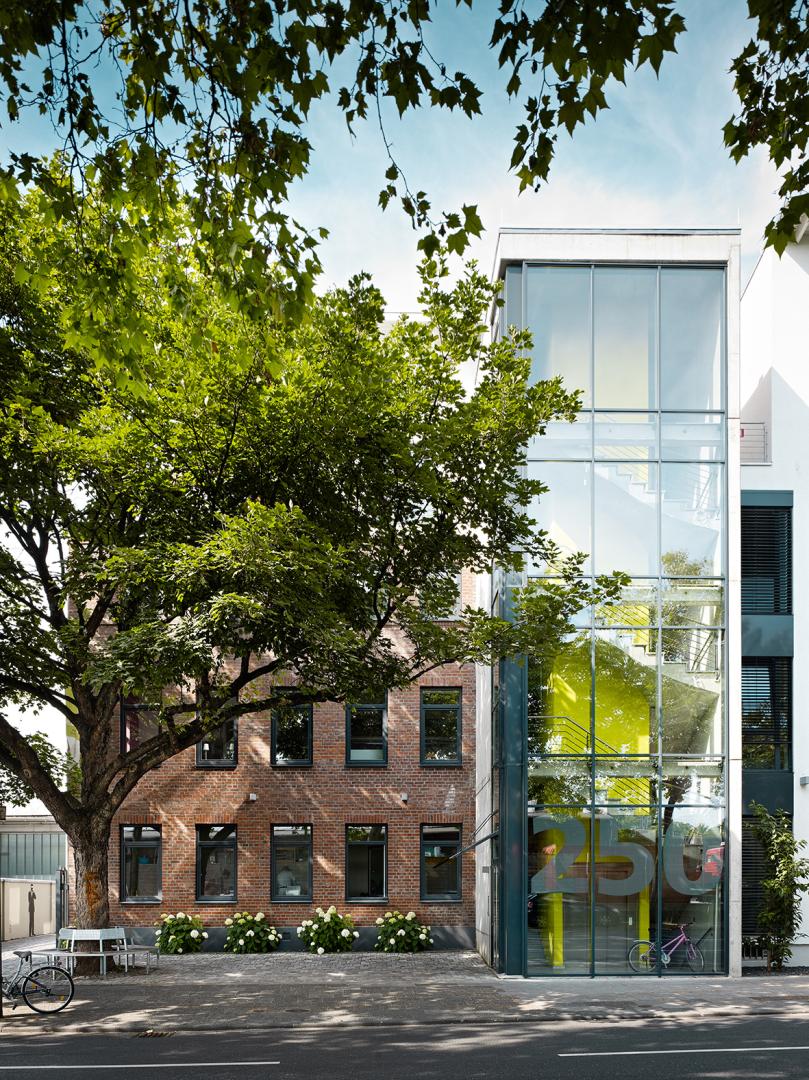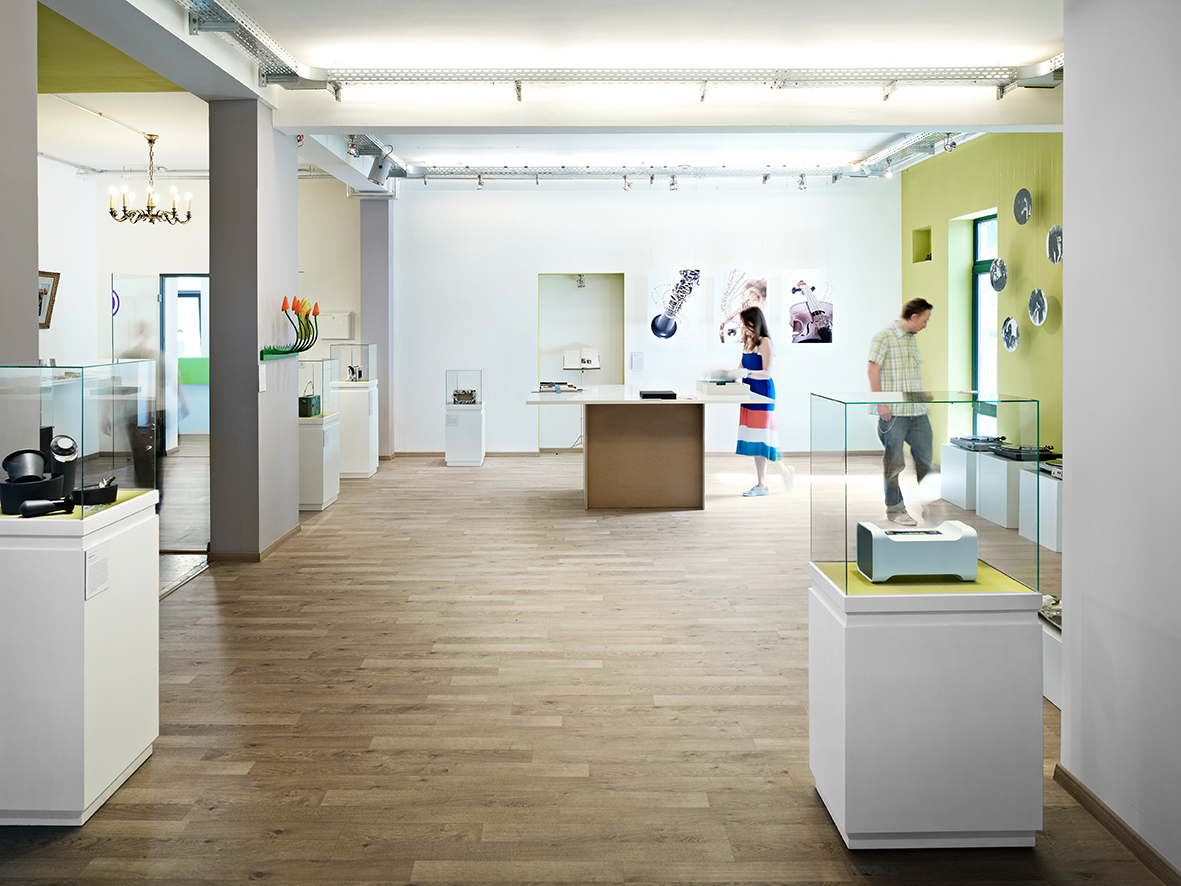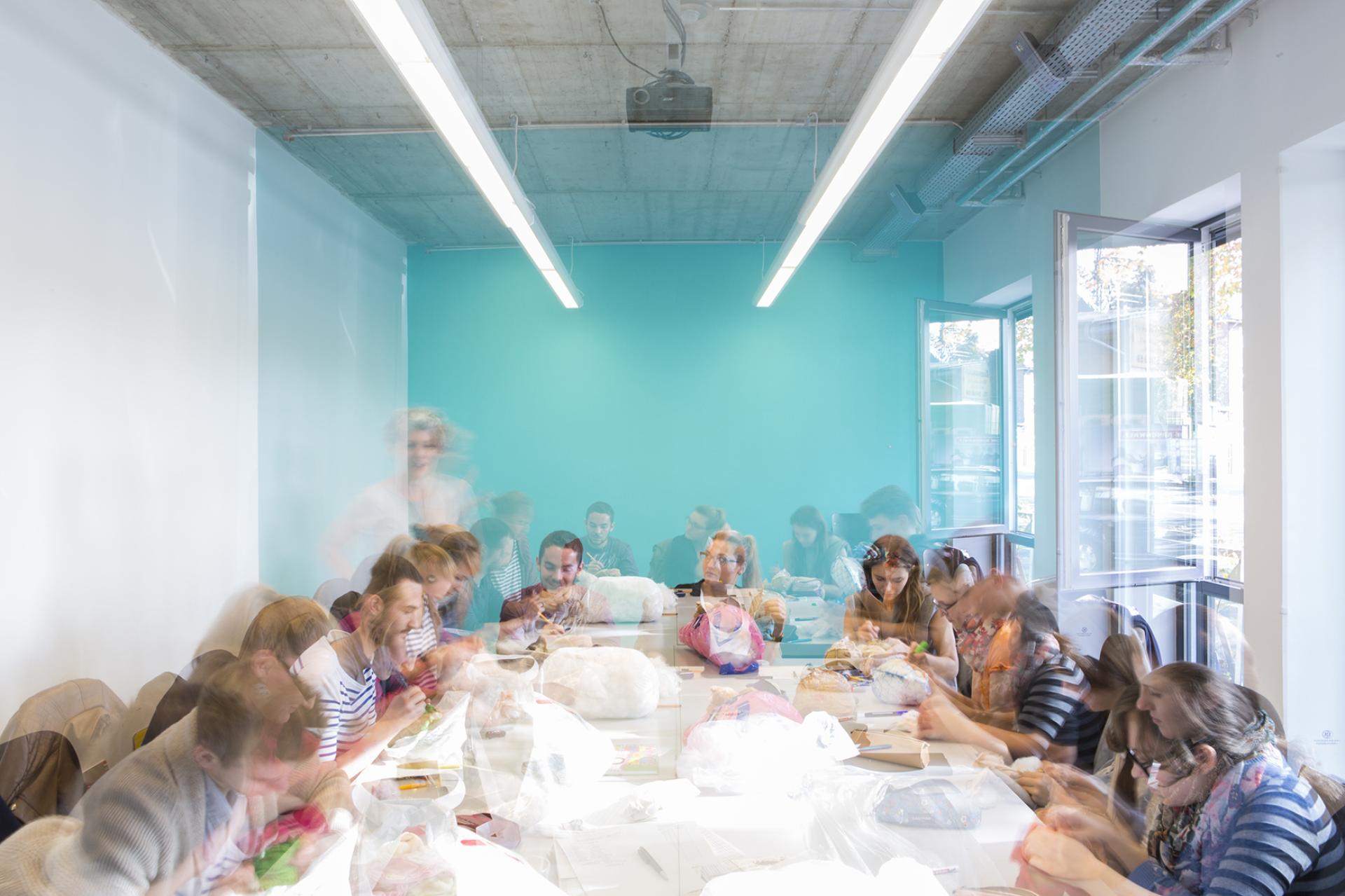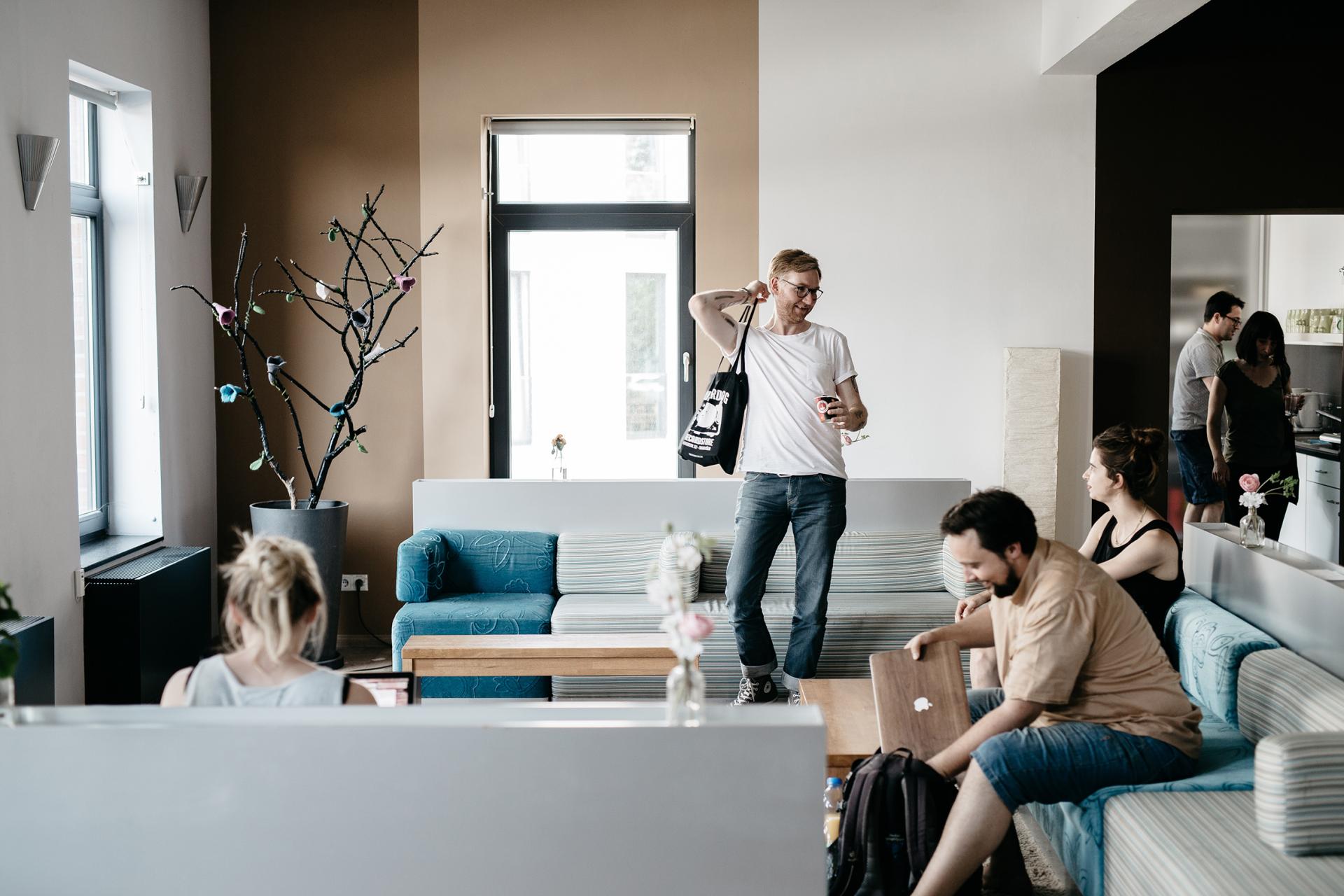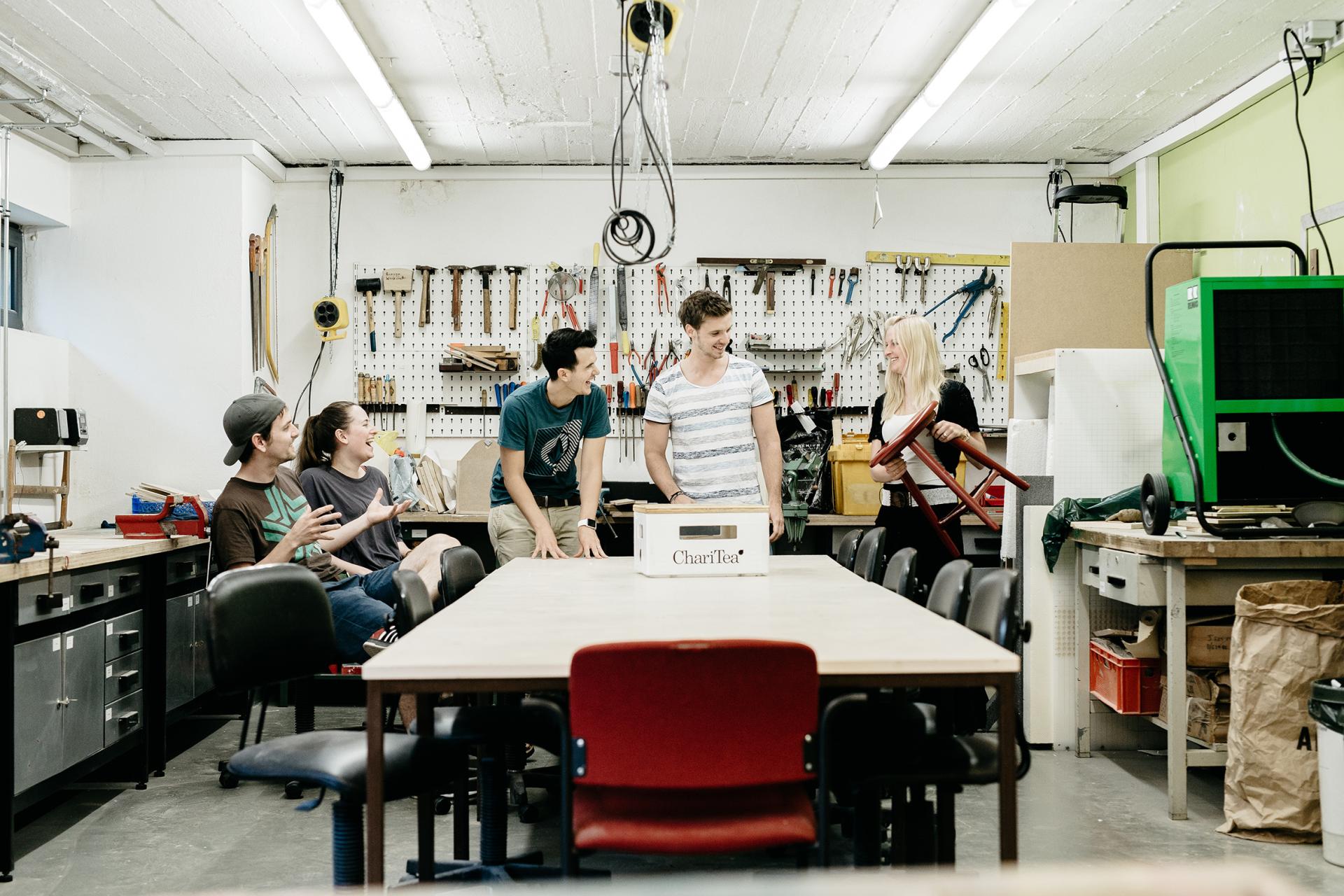Ecosign – Academy for Sustainable Design
Basic information
Project Title
Full project title
Category
Project Description
The Ecosign/Academy for Sustainable Design has lived, developed and taught the values of sustainability for more than 25 years. Situated in the “Design Quarter” Ehrenfeld in Cologne, Germany, we encourage young designers who have broad expertise and highly creative potential as well as a strong motivation to transform our society and our ways of living, consuming and producing towards sustainability.
Project Region
EU Programme or fund
Description of the project
Summary
The Ecosign/Academy of Sustainable Design offers the first and only study degree program in Sustainable Design (B.A. and M.A.) in Germany. About 300 students from diverse cultural and family backgrounds are being educated in communication design, product design, illustration, and photography by qualified professors from various fields of academic and artistic disciplines. Sustainable designers need an interdisciplinary ecological, social, and cultural knowledge to deal with the upcoming complex challenges of our future. Therefore, the
sustainability courses form the backbone of the curriculum. Additionally, there are mandatory courses in
humanities and social sciences besides the artistic and specialist lectures. Another focus of the curriculum is the cooperation with renowned partners from science, economy and civil society, in which our students carry out ambitious tasks proposed by the project partners and have to face free market competition under real design pitch conditions. With such integrated and interdisciplinary knowledge on the one hand and practical experiences on the other, our graduates are well prepared to find excellent jobs in executive positions accelerating a sustainable transformation. The Academy is also firmly engaged in scientific research and development with renowned institutions and organizations such as the Wuppertal Institute of Climate, Environment, and Energy, the Club of Rome, Greenpeace, the Collaborating Centre on Sustainable Consumption and Production (CSCP).
Key objectives for sustainability
The core purpose of Ecosign Academy is to educate students towards a responsible and sustainable design, including the key challenges of a sustainable transition of our society and economy: The planetary boundaries, including climate change and adjacent processes, resource scarcity, and an inclusive approach as stated in the Sustainable Development Goals. Our understanding of Sustainable Design is science-based and aims at problem-solving, energy and material efficiency, as well as circularity.
Within the Ecosign Academy, sustainability is the corporate philosophy and spirit which has guided all our actions and pursuits for more than 25 years. It is not only since the Fridays for Future movement brought the issue into the mainstream that we implement sustainability in all areas of academic life: The whole interior and technical equipment fulfils the highest material standards related to durability, aesthetics and renewable raw materials. In terms of social interaction, we stand for inclusion and integration, participation, small hierarchies, and transparency. Our dialogue-centered teaching methods aim at the holistic formation of individuals and personalities with the strong motivation to take responsibility for our planet and the generations to come. Our students and teachers work together in a small, familiar and inspiring atmosphere, where talents are individually encouraged, developed, and empowered. We are proud of the various awards and successful careers of our graduates in all areas of green design.
Key objectives for aesthetics and quality
At the Ecosign Academy, about 300 students are being educated in the artistic key disciplines communication design, product design, illustration and photography by highly qualified professors and designers whose professionality and aesthetic qualities are confirmed by various design awards. We believe that sustainable designers need an interdisciplinary ecological, economical and cultural knowledge to change the consumerist lifestyle towards a sustainable one. But at last, it will be the aesthetic quality and the functionality of a product and the way these are communicated which will convince people to use it.
Key objectives for inclusion
Inclusion is one of the main values at the Ecosign Academy: Our students come from diverse cultural and social backgrounds. Equality of gender, race and physical capacities forms the backbone of our way we work and live together at the academy – concerning the curricular content as well as the way we communicate with each other. The Ecosign students are very much engaged in fields of inclusion and equality and many of the semester projects deal with related themes, f.ex. the project “We are strong” with the Caritas, a social welfare agency, in 2019. Ecosign students cooperated with a primary school class in a deprived city district of Cologne, “the Kölnberg”. Reclaiming their children’s rights of physical and mental health and integrity, they renovated an old sports ground together and built an outdoor skate park.
Results in relation to category
The Ecosign offers a Bachelor and Master degree in Sustainable Design (B.A./M.A.) in cooperation with the AMD Academy Fashion and Design of Hochschule Fresenius, which is the first and only in Germany. Our 300 Students are being educated in communication design, product design, illustration, and photography by qualified professors from various fields of academic and artistic disciplines. Sustainable designers need an interdisciplinary ecological, social, and cultural knowledge to deal with the upcoming complex challenges of our future. Therefore, the sustainability courses form the backbone of the curriculum. Additionally, there are mandatory courses in humanities and social sciences besides the artistic and specialist lectures.
How Citizens benefit
Design is a key discipline of a sustainable transformation. With the study programs in Sustainable Design, we aim to provide the qualified design professionals to the civil society and corporate world that are indispensable for a successful sustainable shift. In order to achieve this goal, the ecosign Academy regularly works together with leading research institutes, civil-society players and NGOs in terms of transformational sustainability. As part of the three-year national research project “Lifestyle@ProKlima” in cooperation with the Wuppertal Institute of Climate, Environment, and Energy and the Club of Rome, we are developing a CO2-calculator and training materials for students to inform them about and sensitize them to the CO2 impact of their internet use. In another semester project called “We are strong” with the Caritas, a social welfare agency, Ecosign students cooperated with a primary school class in a deprived city district of Cologne, “the Kölnberg”. Reclaiming their children’s rights of physical and mental health and integrity, they renovated an old sports ground together and built an outdoor skate park. With its location in Ehrenfeld, a part of Cologne with many trans- and subcultural actions and events, the Ecosign Academy is a strong, co-creating institution with a multiplying factor for sustainable change. We are engaged in the “Night of the Museums” and take part in many fairs, presenting innovative sustainable design. Last but not least, such awarded flagship design projects like “Pfandring” (http://www.pfandring.de) and UDO (https://www.udo-duo.com) were born at the Ecosign and will convince consumers more and more of a sustainable lifestyle.
Innovative character
As early as 1994, when today’s Fridays-For-Future-generation was just being born, the young design graduate Karin-Simone Fuhs founded the Ecosign/Academy for Sustainable Design. Being influenced by her childhood in Cairo/Egypt, she realized very early that it was necessary to rethink global economy and the consumerist lifestyle to guarantee a healthy, equal and fair life for all people and that a stable ecological balance of the planet is an indispensable prerequisite for that. Design takes a key role in the transformation towards a sustainable lifestyle, for 80% of the environmental impact is determined by the design process. From then on, she developed the academy further and further, beginning with forming a completely new study degree program of Sustainable Design, first with the degree of diploma and Bachelor of fine Arts (since 2017), and implementing sustainability in all areas of the academy, from the building materials to the technical equipment and the social and administrative interactions. Currently the Ecosign offers a Bachelor and Master degree in Sustainable Design (B.A./M.A.) in cooperation with the AMD Academy Fashion and Design of Hochschule Fresenius, which is the first and only in Germany. Unlike the standard portfolio-application of other artistic academies and universities, the application procedure consists of a very individualized assessment day, taking into regard many different aspects of artistic, as well as theoretical competences and personality, ecological consciousness as well as moral standards. The academic teaching combines professional artistic competences with a broad and interdisciplinary scientific insight. Our graduates are strong and responsible personalities who are able to design our present, planting the seed for a sustainable future.

